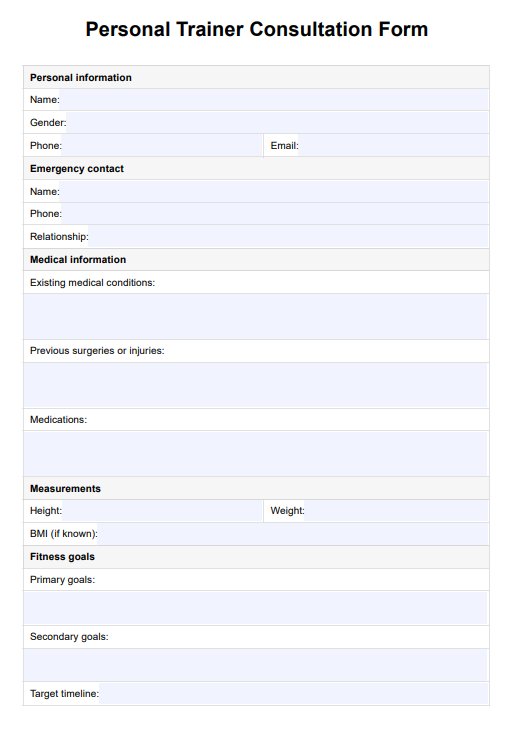A consultation form should be revisited and updated periodically, such as every six months or when a client’s goals, health status, or lifestyle changes. Regular updates allow trainers to adjust the fitness plan to align with evolving objectives and circumstances.

Personal Trainer Consultation Form
Get access to a free Personal Trainer Consultation Form you can use for your fitness business. Download the PDF template and sample here.
Personal Trainer Consultation Form Template
Commonly asked questions
Yes, using a detailed consultation form fosters better communication and trust between trainers and clients. Addressing specific needs and tracking progress effectively enhances client satisfaction and retention within a fitness business.
The form serves as a reference point for tracking a client’s progress over time. By comparing initial data, such as fitness goals and baseline measurements, with periodic updates, trainers can measure achievements and adjust plans to maintain momentum and motivation.
EHR and practice management software
Get started for free
*No credit card required
Free
$0/usd
Unlimited clients
Telehealth
1GB of storage
Client portal text
Automated billing and online payments











